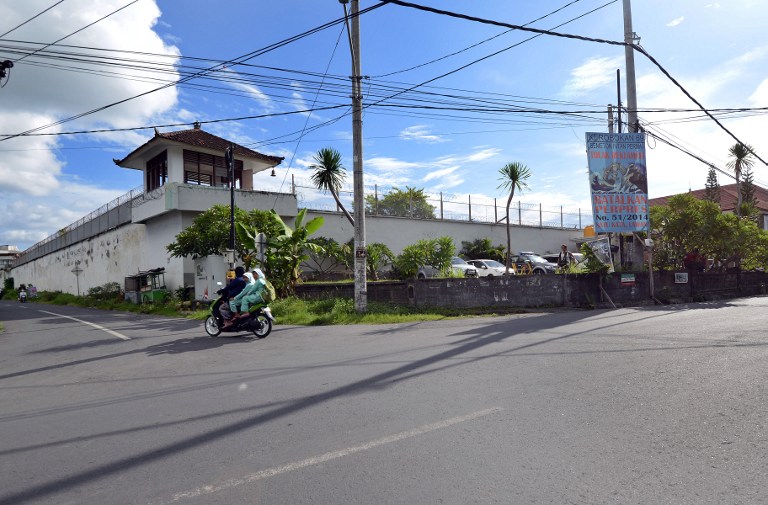Bali’s Kerobokan Prison has earned infamy over the years, housing criminals who’ve made the international headlines like the Bali Suitcase Murder pair, the Bali bombers, Schapelle Corby who just got released after parole, and of course, members of the Bali Nine.
Located smack-dab in the middle of town, the prison’s been notoriously overcrowded for ages—a problem that’s becoming worse and worse—and has earned a reputation as a hub for the island’s drug trade.
Australian journo Kathryn Bonella gave a lurid account of the prison in her 2012 bestseller Hotel Kerobokan, but never before has the public really been able to see what it’s like inside.
Until last week, when a team from the Australian Broadcasting Corporation gained unprecedented access, nearly unrestricted—they just weren’t allowed to film inside the women’s cells.
With adept reporting from Samantha Hawley, ABC’s Foreign Correspondent program put together a half-hour program taking us through a day in the life at Kerobokan, with interviews from some of the prison’s high profile prisoners like former Reuters correspondent David Fox, as well as other Indonesian inmates, Kerobokan’s longest serving jail guard, and the warden.
The special, however, centers on Bali Nine Australians Matthew Norman and Si Yi Chen. The two have now served 12 years of their life sentences inside Kerobokan for the scandalous heroin trafficking operation in 2005 that ultimately resulted in the execution of ringleaders Myuran Sukumaran and Andrew Chan by firing squad back in 2015.
Chilling reflections on remorse and hope are given by both Chen and Norman—the latter, who was just 18 when he committed the crime. Tugging at the heartstrings, the program shows Norman’s father visiting him in jail—his father moved two years ago to Bali so he could visit his son every week.
“Every time I see my dad in the visit, or catch up with family when they’re here, I feel regret every time I see them. I just feel so guilty for them.
“I committed the crime but they have to deal with the consequences as well. It’s not fair. It’s not fair on them.”
A significant part of ABC’s coverage focuses on the transformation that both Chen and Norman have made, since they were first locked up. Norman in particular offers English and computer classes to Indonesian prisoners, does t-shirt-printing, and is involved in the church.
The warden is working to commute both Chen and Norman’s sentences down to 20 years.
An interview by Fran Kelly with Hawley on ABC radio national about the Foreign Correspondents coverage gives even more insight into the paradoxical world that is Kerobokan: a prison that for the most part runs orderly (despite the occasional flare up) even though it is severely understaffed and overcrowded. Just look at the video and you’ll see most inmates don’t even have beds or spots in cells to sleep. Personal space is hard to come by in Kerobokan.
“Eighty percent of the people in that prison are there for drug crimes and that could be for as little as a joint, for instance” says Hawley.
“But you could be in there for four years for a very small quantity of personal use of hashish, for instance.
“So it’s a jail full of drug users, a jail full of drug traffickers, and drug sellers. But it’s an incredible prison, because… it’s a prisoner-led prison.”
The prison, said to be built for just 296 prisoners, now holds about 1,300. There are eight guards total, but four are posted to the prison’s towers—so there are only four guards patrolling a total of 1,300 inmates at any given time, says Hawley.
It seems what got the ABC crew such unfettered access to the prison, was in part a desire from the Ministry of Corrections to show the prison’s extraordinary level of overcrowding.
“What we were told was that, one, they liked the letter we sent to the corrections minister in Indonesia in that we didn’t ask to speak to any particular prisoner,” Hawley told Kelly.
“We simply said that we’d like to document a day in the life of the prison. And secondly, as we were told, the Minister of Corrections had wanted us to show an underfunded, overcrowded prison that was coping under the circumstances and treating its prisoners with humanity.”
There’s been talk for the several past years of relocating Kerobokan Prison to other areas of Bali where there would be more space that could meet the capacity demands, like to Suwung or Nusa Penida, but it’s been just that: talk.





